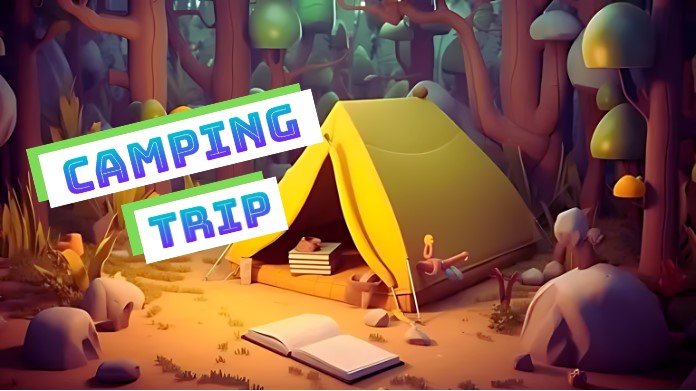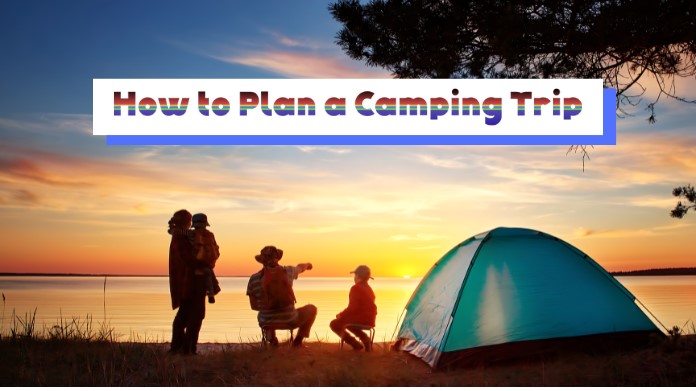Everything You Need to Know About Camping Trip

About Camping Trip
A camping trip is when you go outside and stay away from your house, often in places like a forest, lake, or mountains. It's a chance to take a break from your routine and enjoy nature.
How to Plan a Camping Trip [Step-by-Step Guide]

Step 1 - Choose a Destination
Research potential camping locations based on your preferences (e.g., mountains, beach, forest). Consider factors like distance, weather, terrain, facilities, and regulations.
Step 2 - Check Permit and Reservations
Determine if a camping permit or reservation is required for your chosen destination. Construct reservations well in advance, especially for popular campgrounds during peak seasons.
Step 3 - Gather Essential Gear
Tent (with stakes and guylines) Sleeping bags and sleeping pads Camping stove or grill Cooking utensils and pots Water containers and purification supplies First aid kit Flashlights or headlamps with extra batteries Navigation tools (map, compass, GPS) Clothing suitable for the weather Firestarter and firewood (if allowed)
Step 4 - Plan Meals and Snacks
Create a meal plan for each day of your trip, considering cooking equipment and perishable/non-perishable food items. Pack easy-to-prepare meals and snacks that provide energy for outdoor activities.
Step 5 - Prepare Camping Checklist
Make a checklist of all the gear, food, clothing, and other essentials. Double-check the list to ensure nothing is forgotten.
Step 6 - Pack Smart
Organize your gear and pack it efficiently, considering weight distribution and accessibility. Use waterproof bags or containers for items that need protection from moisture.
Step 7 - Plan Activities
Research and plan outdoor activities such as hiking, fishing, swimming, or wildlife watching. Check for any permits or equipment needed for specific activities.
Step 8 - Review Safety Precautions
Familiarize yourself with the campground's rules and safety guidelines. Learn basic first aid and emergency procedures. Share your itinerary with a trusted person and carry a means of communication (e.g., phone, radio).
Step 9 - Leave No Trace
Practice Leave No Trace regulations by minimizing impact on the environment. Dispose of waste properly, respect wildlife, and leave natural objects undisturbed.
Step 10 - Check Weather Forecast
Monitor weather situations leading up to your trip and check the forecast before departing. Be scheduled for changing weather conditions by packing appropriate clothing and gear.
Step 11 - Transportation and Arrival
Arrange transportation to the camping site, whether by car, RV, or other means. Plan your route and allow extra time for unexpected delays.
Step 12 - Set Up Camp
Upon arrival, select a suitable campsite respecting campground regulations. Set up your tent, arrange sleeping gear, and establish a cooking area.
Step 13 - Enjoy Your Trip
Engage in planned activities, explore the surroundings, and relax in nature. Follow safety guidelines and be mindful of wildlife encounters.
Step 14 - Break Down Camp
Clean the campsite, pack out all trash, and leave the area as you found it. Ensure the fire is entirely extinguished if you have one.
Step 15 - Reflect and Share Memories
Reflect on your camping experience and share memorable moments with friends or family. Consider feedback for future trips and cherish the memories made outdoors.
Tips for a Successful Camping Trip
Check the weather and book your campsite to avoid problems later.
Take only what you need to avoid carrying heavy bags. Bring essentials like a tent, sleeping bag, food, and clothes for the weather.
Use bags or containers to keep your stuff tidy and easy to find at the campsite.
Learn how to set up your tent and gear before camping to make things easier.
Bring a first aid kit, know basic first aid, and share your plans with someone you trust in case of emergencies.
Keep your campsite clean, don't disturb wildlife, and follow fire and waste disposal rules.
Pack clothes and gear for different weather conditions. Have a plan if the weather gets bad.
If allowed, build small fires in designated areas and put them out completely when you're done.
Keep your food secure, avoid attracting animals, and never feed wild animals.
Drink enough water and eat well to stay energized for outdoor activities.
Relax, explore, and enjoy outdoor activities like hiking or fishing.
Clean up your campsite before leaving, pack out all trash, and ensure the area looks better than when you arrived.
FAQ's
Q. What is the First Thing to Consider in a Camping Trip?
Q. What is the First Thing to Consider in a Camping Trip?
